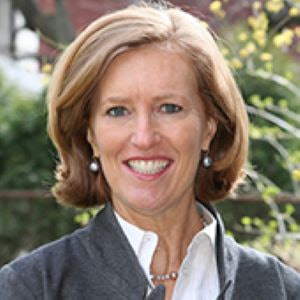At the height of the COVID-19 pandemic, unemployment in the United States reached 14.8% in April 2020.
Given the high number of hiring freezes and job losses, post-secondary enrollment and revenue plummeted. Earning an education was no longer attainable or affordable for many potential and current students.
 David Rust
David RustNow, as the nation turns toward recovery, College Promise—a non-profit aimed at eliminating college cost barriers—is implementing new models and training to promote economic mobility and post-college career success.
Several of these programs were featured in the College Promise hosted webinar “Financial Sustainability for College Promise Programs: Navigating Through and Beyond COVID-19” on Thursday.
“The pandemic has shaken us all in every realm of life and in every aspect of education,” said Dr. Michael T. Nettles, senior vice president and the Edmund W. Gordon Chair of Policy Evaluation & Research at the Educational Testing Service (ETS). “College Promise initiatives are no exception. We are faced with the same needs today that we had prior to the pandemic and even more.”
Founded in 2011, the Say Yes Buffalo focused on providing scholarships and comprehensive supports to increase post-secondary completion rates and create economic revitalization in the city of Buffalo, New York.
Under the program, scholarships are offered to graduates of Buffalo charter and public schools to attend City University of New York (CUNY) and State University of New York (SUNY) institutions and to more than 90 private universities and colleges across the country.
“When you are taking about the challenges that exist in a city like Buffalo—third poorest, large urban market, almost half the children live in poverty here, the city has had extreme racial and economic segregation which go hand in hand—no one entity can tackle that problem alone,” said David Rust, executive director of Say Yes Buffalo. “Hence our collective impact approach to this.”
This past year, over 2,500 students were supported with scholarships. Among the recipients, 60% had a combined family income below $20,000, according to Rust.
Beyond scholarships, the program provides early childhood screenings, mental health clinics, social services and health case workers in public school buildings, civil legal services, parent centers and summer camps for pre-K to sixth grade students.
Pre-college initiatives include financial aid assistance, mentoring and college transitional curriculum.
 Dr. Teresa Eckrich Sommer
Dr. Teresa Eckrich SommerThis has resulted in a 23% increase among college going rates—defined as certificate, two-year degree and four-year degree. Postsecondary completion is up by 3%, which ranks higher than New York’s state average, according to Rust.
“Our thesis is that if you are hungry, if you don’t have proper clothing, if you don’t have a home, that college scholarship is ultimately meaningless,” he said. “Families in our city are making really hard choices every single day.”
To provide support during COVID-19, the program opened 50 learning centers where children could complete their remote work, eat a hot meal and participate in recreational activities while their parents or guardians were at work.
“We were shedding jobs in this community,” said Rust. “We have a fragile economy and those parents needed those jobs. And we stood those virtual learning centers up while the public schools were closed due to the pandemic.”
Say Yes Buffalo also plans to launch an apprenticeship model in less than a year to allow students to receive on the job paid-training while earning a certificate or credential from a higher education institution in the areas of information technology, business operations, advanced manufacturing and health care.
To improve economic mobility as a whole, Dr. Teresa Eckrich Sommer, research professor at the Institute for Policy Research at Northwestern University, discussed the idea of two-generation education strategies among College Promise programs.
For example, Hope Toledo Promise was established in 2020 to improve intergenerational mobility for families in Toledo, Ohio. The program offers four and half years of scholarship support with wraparound support for both the youth and parent.
Parents must have a child in the program and hold a GED. Those who have a bachelor’s degree already are ineligible.
Going forward, there are plans to scale the program to meet high demand jobs such as health care.
Other tuition-free models such as CareerAdvance® seek similar outcomes. Created in 2010, the program invests in the education of parents, especially in fields related to health care. Participants receive academic and employment coaching and receive stackable health care training.
Parents in the program showed higher rates of career certification and employment in health care compared to those who weren’t. For example, 63% earned certification within the first year compared to just 3% of individuals not involved in CareerAdvance. Participants also experienced less financial stress.
Sommer emphasized that parents are “central” to children’s educational and economic success.
“We know that parents have the greatest influence themselves on children’s trajectory,” she said. “They are the primary engine of healthy or unhealthy development for children. They serve as educational role models.”
Sarah Wood can be reached at [email protected].















